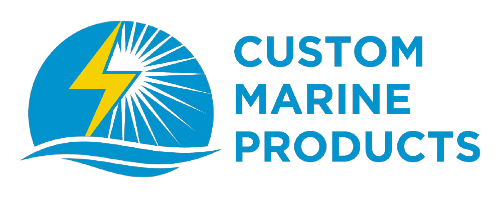Marine Solar Panels 101
Marine solar panels are specialized photovoltaic panels designed for use on boats, yachts, and other marine vessels. These panels harness solar energy to provide a sustainable power source, reducing reliance on traditional fuel-based generators and enhancing the eco-friendliness of marine operations. Here are some key aspects of marine solar panels:
Features and Characteristics
- Durability and Weather Resistance: Marine solar panels are built to withstand harsh marine environments. They are typically made with materials that resist corrosion, water, salt, and UV radiation.
- Flexibility: Some marine solar panels are flexible, allowing them to be installed on curved surfaces such as the decks of boats. This flexibility helps maximize the use of available space on a vessel.
- Highest Efficiency: To make the most of the limited space on a boat, marine solar panels should be designed to be highly efficient, converting as much sunlight as possible into electrical energy. Ours offer 24.4% efficiency, the highest commercially available. The cells themselves are also shade tolerant unlike most solar cells.
- Ease of Installation: These panels often come with features that simplify installation, such as pre-drilled holes, adhesive backing, or specialized mounting systems.
- Lightweight Design: Given the importance of weight on a marine vessel, marine solar panels are generally lightweight, which helps maintain the boat’s performance and balance.
Types of Marine Solar Panels
- Monocrystalline Panels: Known for their high efficiency and long lifespan, monocrystalline panels are a popular choice for marine applications. They perform well in low-light conditions, which can be beneficial on cloudy days or in shaded areas.
- Polycrystalline Panels: These panels are slightly less efficient than monocrystalline ones but are typically more affordable. They are still a viable option for marine use where budget considerations are important.
- Flexible Panels: These are often made from thin-film photovoltaic materials and can be bent to fit the contours of a boat’s surface. They are ideal for applications where rigidity is a concern.
Benefits
- Reduced Fuel Consumption: By generating power from the sun, boats can reduce their dependency on fuel-based generators, leading to cost savings and reduced environmental impact.
- Silent Operation: Solar panels operate silently, which is a significant advantage over noisy generators, providing a more pleasant experience on the water.
- Low Maintenance: Marine solar panels require minimal maintenance. Regular cleaning and occasional checks for damage are typically sufficient to keep them operational.
- Extended Battery Life: Solar panels can help maintain and extend the life of a boat’s battery by providing a steady charge, reducing the frequency of deep discharges that can damage batteries over time.
Applications
- Battery Charging: Marine solar panels are commonly used to charge the batteries that power various systems on a boat, such as navigation lights, communication devices, and entertainment systems.
- Supplemental Power: They can provide supplemental power to reduce the load on the boat’s primary power system, enhancing overall energy efficiency.
- Standalone Power Systems: For smaller boats or auxiliary systems, solar panels can be the primary power source.
Considerations for Installation
- Space Availability: Assessing the available space for installing solar panels is crucial. Flexible panels can be advantageous if space is limited or irregularly shaped.
- Energy Requirements: It’s essential to estimate the boat’s energy consumption to determine the number and size of solar panels needed.
- Mounting Options: Choosing the right mounting system (fixed, tiltable, or adhesive, bimini, deck, arch, rail) can impact the efficiency and longevity of the solar panels.
- Shading and Orientation: Ensuring the panels are installed in an area with minimal shading and optimal orientation towards the sun maximizes energy production.
Conclusion
Marine solar panels are an effective solution for generating sustainable energy on boats, offering numerous benefits such as reduced fuel consumption, silent operation, and low maintenance. When selecting marine solar panels, it's important to consider factors like durability, efficiency, space, mounting system, and specific energy needs to ensure optimal performance and a positive impact on both the environment and the boating experience.
